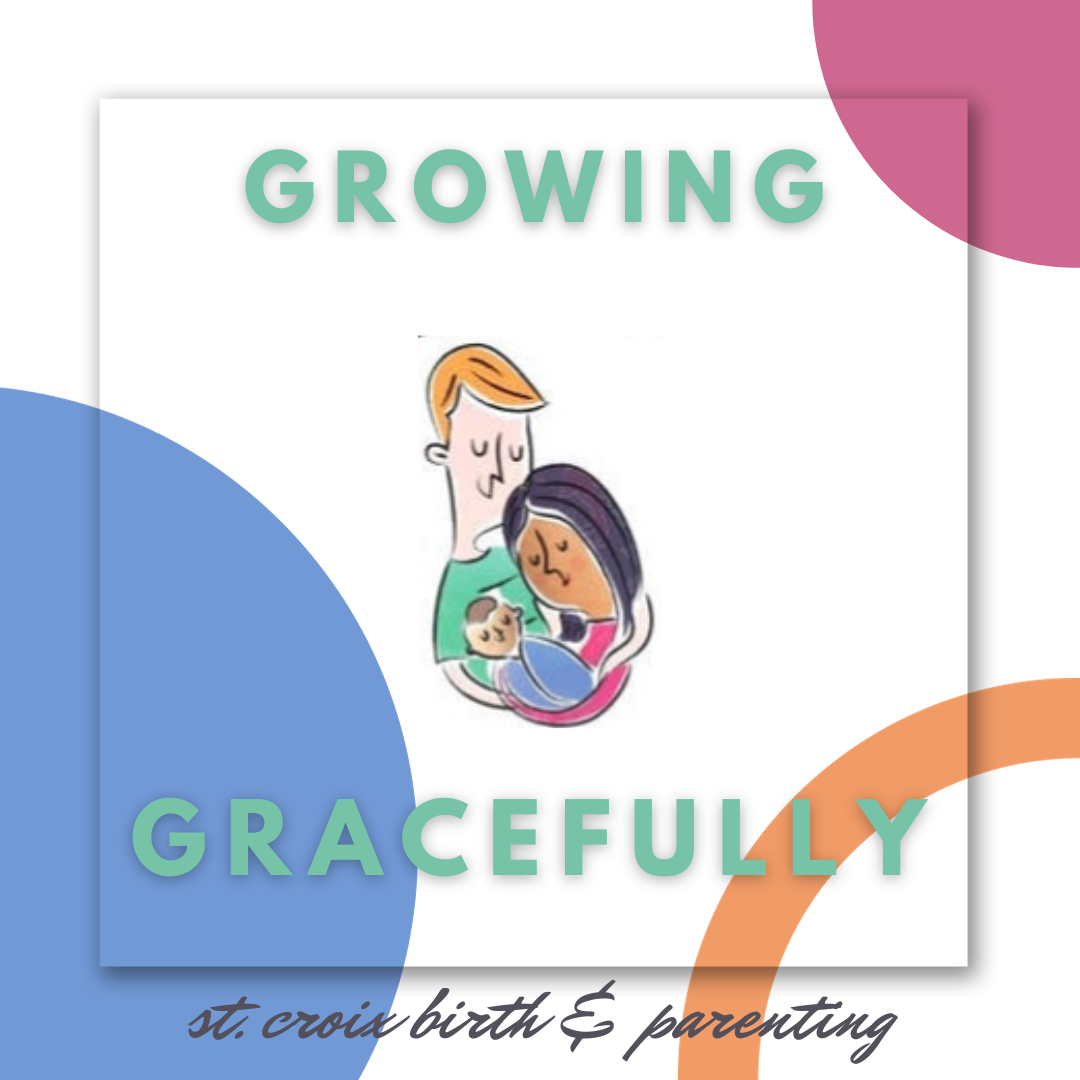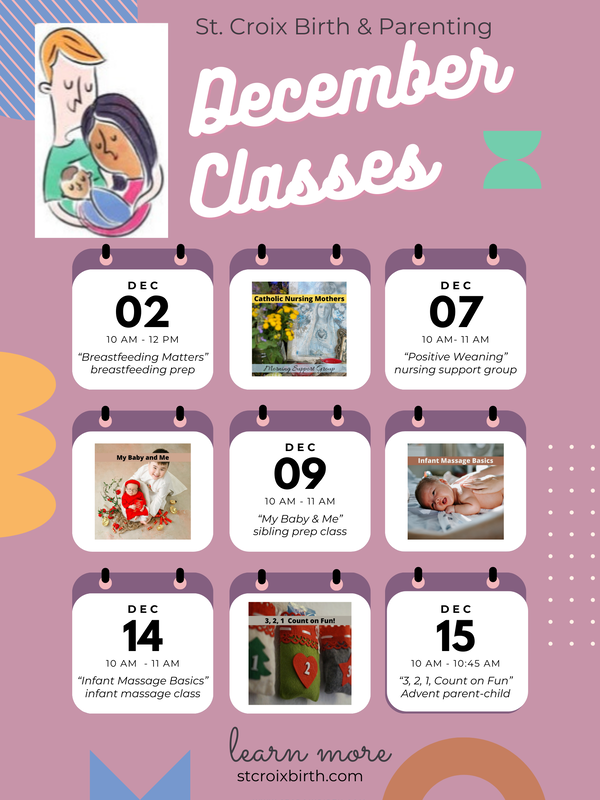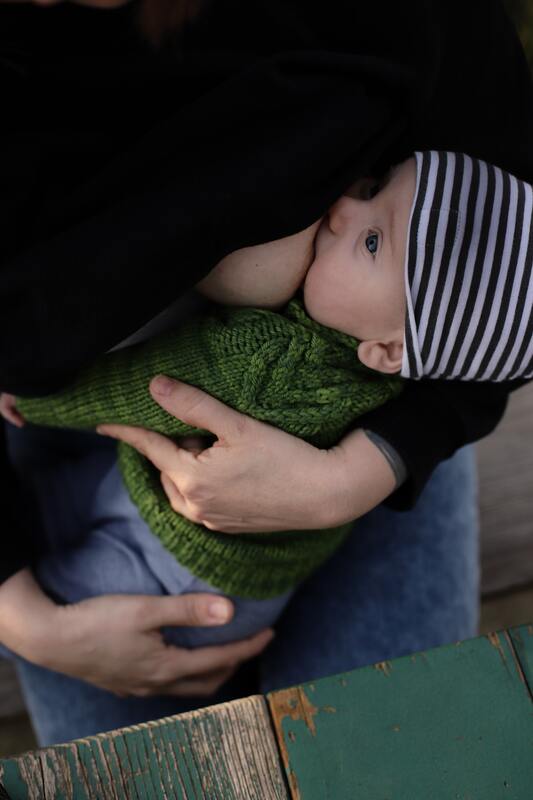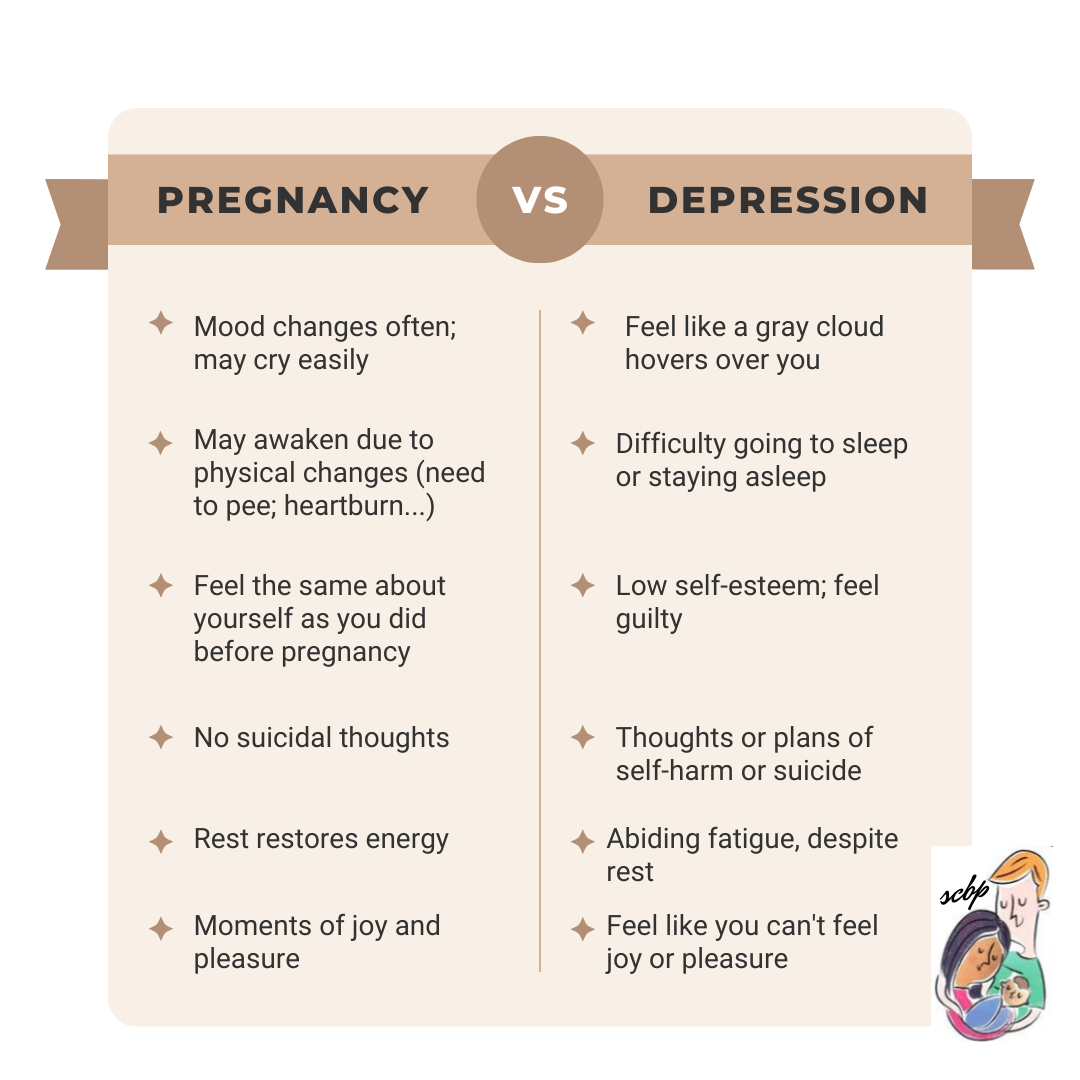GENTLE, POSITIVE WEANINGWhile the word "weaning" often conjures up images of wailing babies and swollen, painful breasts, gentle, baby-led weaning is often so gradual and natural a process that mother may not even remember the exact day or even week that her little one weaned from the breast. Gradual weaning is gentler on both mother and baby. I use the term "positive weaning" to describe this style of weaning. Instead of abruptly removing a child from the breast, positive weaning is a mindset that respects the child's developmental readiness and views weaning as a process. Being "fully weaned" is a milestone and achievement, like mastering how to use the toilet, learning to ride a bike, or learning to read. Positive weaning also respects the mother's needs and bodily integrity, since the process of weaning may often be the child's first exposure to the idea that each person's body belongs to that person, and their first experience of respecting that others can, and will, say "no" to him or her on occasion. These important lessons have many benefits for the child long into the future. INFANT MASSAGENo matter how they are fed, newborns benefit from infant massage as they transition from womb to world. For a young child, touch is as vital to life as milk. Infants who regularly receive infant massage cry less, develop faster, and have fewer discomforts. Infant massage is a wonderful way to encourage your baby's health and well-being while bonding with your child. JOYFULLY WELCOMING A NEW SIBLINGFor many children, their special time as the "baby of the family" will come to an end when a new sibling arrives. The uncertainty of how their child will handle this transition is often a source of considerable worry for parents during pregnancy. Often in books or shows on this topic, the older sibling is portrayed as jealous and the parents or grandparents as only interested in the new baby, and in my opinion, these negative depictions plant seeds of worry and pessimism in the older sibling that may contribute to a long-term "sibling rivalry." My own experiences as a mother of seven have taught me that this transition is easier on the new big brother or sister when the older child is involved in the pregnancy; for example, attending prenatal care or ultrasound appointments; looking at ultrasound photos together; or helping to pick out clothing or prepare the home for the new baby. It is beneficial if there have been age-appropriate discussions of the birth process and birth plans; as well as frequent discussions of what they can expect of a newborn, and how Mom, Dad, and Big Sister or Brother will care for the baby...all with a positive, excited attitude. During the typical challenges of pregnancy, and especially if complications arise during the pregnancy or birth, it is best to talk with your child in an age-appropriate way about what is happening to mommy or baby and how they can help, even if in very simple ways, like, "Please bring Mommy a glass of water." When the child does these precious acts of service, praise the child, letting him or her know what a great big brother or sister he / she already is. Empathy, gentleness, education, and encouragement will go a long way toward helping the young child to embrace this new role that, God willing, will last a lifetime. SCBP RESOURCES
0 Comments
We had been hoping for and planning to try for another child -- so the news I was pregnant was welcomed by both of us -- but I share this story to let you know that holiday weaning -- and an unexpected holiday-conceived baby -- aren't just theories for me! A mere two months prior to that positive pregnancy test, when our oldest child turned two years old, I had visited my doctor to let her know that my fertility (both menstruation and ovulation) had not yet returned. Due to my prior history of infertility, she had advised that we begin to investigate possible causes. However, I had done nothing more than talk to the doctor when we conceived our dearly loved second child. Surprise! What happened? After giving birth, a breastfeeding mother has two different hormonal "sides" that can be imagined as the two sides of a scale. On one side, she has breastfeeding hormones that promote lactation (and tend to suppress ovulation) -- and on the other, reproductive hormones that promote ovulation, and which may lead to another pregnancy. While the timing of her return of fertility varies from woman to woman, and even from baby to baby by the same mother (due to many different factors) the general principle is that frequent and unrestricted suckling at the breast is the most important factor that keeps the breastfeeding hormones side of the scale "heavier," resulting in continued natural suppression of fertility. However, the further out in time from the birth, the easier it is for the reproductive hormones to tip the scales, so that menstruation or ovulation may return. This is part of the reason why the holiday season is indirectly responsible for many late summer and fall babies! What factors contribute to this unexpected holiday-related return of fertility? Here is a partial list:
If, like my husband and me, you are hoping for another baby, then just pay attention to your signs of fertility and enjoy making your holiday baby if the signs point to being fertile! However, especially if your baby is under a year old, you may want to protect your breastfeeding relationship, discourage weaning, and delay making a new baby until later in the future. In that case, you definitely want to do what you can to avoid changes in your usual nursing and sleeping routines as much as possible. This may not be the year to host holidays and celebrations! Keep your meals and preparations simple, and maybe even skip some of this year's parties. Remember, you need to maintain your normal routines as much as possible, so that baby's frequent suckling at the breast remains as consistent as possible. At the same time, be vigilant to observe and record your signs of fertility, so that if you do detect any changes that indicate fertility, you and your husband can still celebrate, but in less intimate ways. If a more detailed discussion of how to protect your breastfeeding relationship during the holidays, how to interpret your signs of fertility, or how to understand the return of fertility after birth would be helpful to you, contact me (Christelle) to book a free online, phone, or in-person consultation. As a certified breastfeeding counselor and fertility educator, I can help! For Catholic breastfeeding mothers, "Navigating the Holidays as a Breastfeeding Family," and the unexpected return of fertility are the discussion topics of our online Catholic Nursing Mothers' Group in November. Reach out if you would like to join us for this free online breastfeeding support group!
If you've used Natural Family Planning [NFP] or a fertility awareness method for any length of time, you've probably heard this joke: Q. What do you call people who use NFP? A. Parents! [Yucka yucka yucka.] You may have heard that natural methods of family planning have a very high rate of effectiveness at avoiding pregnancy, as high as 99% effective, depending on the rules followed. To achieve this high rate of effectiveness, natural methods of family planning rely on abstinence from sexual intercourse and genital contact without penetration -- yes, contact pregnancies are a thing. So if that's the case, how come "NFP families" tend to be so darn big??!! (Cue family photo here.)  (Yes; they're all ours.) Let's get real. How come NFP families tend to be so darn big? 1. Taking chances. NFP requires abstinence. As I said before, "To achieve this high rate of effectiveness, natural methods of family planning rely on abstinence from sexual intercourse and genital contact." How many people do you know who are super good at abstinence from say, junk food? White lies? Gossip? And those aren't even particularly good things. Sex is a good thing. Sex with one's spouse is a very good and wonderful, and yes, pleasurable thing. Let's be real...sometimes the idea of maybe-possibly-who-knows? we could have another baby -- and babies are also very good and wonderful -- doesn't seem like such a Bad Idea. So the couple takes a chance...and along comes little Jenny or Timmy. I won't embarrass my kids by naming names, but let's just say I have personal experience with reason #1. If you are serious about not getting pregnant, you cannot, I repeat, CANNOT, take chances. 2. Being inexperienced or "relaxed". If you don't really understand how NFP works... like maybe you learned from the internet for example...you might not really understand how to observe, record, and interpret your signs of fertility. The evil twin sister of this idea is when you really do know how to do all of the above, but you just get kind of in a mindset that things are usually like "x" so you don't really need to do all the things and poof! just like that, something changes and a couple weeks later you're looking down at two pink lines...ask how I know lol. Natural methods are very unforgiving of missed observations and wishful thinking. You gotta do the method consistently to expect it to work. 3. Changing your minds. One of the benefits of natural methods of family planning is even if yesterday you were darn sure you never wanted another baby, you can change your mind the very next day and there's nothing to worry about or wait for. Go ahead and try! Newsflash: families using NFP don't need to announce their pregnancy intentions to anybody, so even if you assume or they told you that they're using NFP to avoid pregnancy, maybe they changed their minds and that is why they're having another baby! Don't assume the method "failed" -- it actually may have been used to achieve a wanted pregnancy! Thank the method for indicating you were fertile so you were able to have a baby that you wanted! 4. Method failure. While rare, it is possible that the couple used the natural method correctly, didn't take chances, and still got pregnant. If you are having sex, or even just "fooling around" without penetration, pregnancy is possible. This is true of any methods (natural or not), as long as the woman's ovaries and the man's testicles are intact. Even patients who have had a tubal ligation or vasectomy become pregnant from time to time. Life sometimes finds a way, even when the "chance" of pregnancy is extremely low! As with any family planning method, natural methods used correctly may fail to prevent pregnancy. If your sexual organs are intact, complete abstinence is the only way to be 100% certain you will not become pregnant. Share your NFP stories! I would love to hear from you!
While postpartum mood disorders like postpartum depression and postpartum anxiety have become well known, awareness of prenatal mood disorders is not as well known. It can be hard to tell if you are "just" pregnant or if you may be depressed. This graphic can help you tease out the differences. If you suspect you might be depressed, make sure to reach out to your health care provider or a mental health professional and share what you are feeling. It is very important to get proper treatment of mood disorders, whether they come up before or after your baby's birth. There are treatments that are safe for you and baby! You are beautiful; you matter; and your mental health matters!
I am so excited to share my new breastfeeding video! In the video I introduce the viewer to St. Croix Birth & Parenting's Breastfeed {Naturally} community and BfN's FREE online course for mothers preparing to breastfeed that I developed this summer, called "Succeed When You Breastfeed." The SWYB course is jam-packed with great natural mama info--I am so proud of it! My first students are joining the course now, and I couldn't be more pleased. Check out my video--and let me know what you think! Sign up for our newsletter, Currents, if you're interested in getting a link to "Succeed When You Breastfeed." My first exposure to a ‘vetch’ was as a gardener, and I immediately recall my intense annoyance with this very hardy (read un-killable) legume. Turns out I should have had a little more respect for this tenacious invader, or at least for its amazing plant ‘cousin’, milk vetch.
Astragalus, also known as milk vetch and Huang-qi, is a legume native to China. There are over 1000 species in the Astragalus genus, but according to Richo Cech, author of Making Plant Medicine, the species Astragalus membranaceus and A. mongholicus are to be preferred for herbal medicine purposes, due to their superior efficacy compared to other astragalus species, so look for one of those if you want to try growing it yourself. Astragalus membranaceus is believed to be safe for use during pregnancy, and indeed, is an herbal remedy with an amazing variety of indications that may be helpful during gestation. There is another astragalus species known as "locoweed" which is dangerous and has been associated with fetal malformations and miscarriages in animal studies; therefore, it is important to make sure to identify the correct species. Since astragalus is more potent than a nourishing herb, if you do decide to try astragalus, take the smallest effective dose. Short-term use only is recommended until more is known about the safety of A. membranaceus in pregnancy. Of course, it is always advisable that you consult with your health care provider before taking any herb during pregnancy. Early pregnancy is notorious as a time when the expectant mother is astoundingly tired. Astragalus to the rescue! Astragalus helps to restore energy and improves an individual’s stamina. As if being exhausted isn’t enough, pregnant women often note that they are more susceptible to viruses, due to their diminished immune system functioning. Thankfully, astragalus is well known as an immune system booster. In fact, the only known medications with which astragalus interacts negatively are those designed to suppress the immune system, which, of course, most pregnant women will not be taking. As pregnancy progresses, a woman’s body produces increasing amounts of progesterone, an essential hormone that helps her body maintain the pregnancy. However, progesterone has the effect of slowing digestion, which for some, can lead to flatulence. Thankfully for everyone, relief of gas is one of astragalus’s actions. All those extra hormones, in addition to the greatly increased blood volume—normal during pregnancy—causes the expectant mom’s liver to work much harder. Astragalus supports liver functioning and is even believed to help restore liver damage. This makes astragalus an important herb for women at greater risk for pre-eclampsia, including moms with a personal or family history of pre-eclampsia, or a history of kidney disease, PCOS, hypertension, diabetes, autoimmune disease, sickle cell disease, or organ transplant; first-time moms; first pregnancies with a different father; obese moms; moms over age 40 or teen moms; moms by IVF; and moms expecting multiples, since decreased liver functioning plays a role in pre-eclampsia. This is especially true if you use astragalus with other liver-protective herbs such as dandelion and milk thistle (both believed safe for use during pregnancy). Kidney function is also aided by astragalus, making it a friend to pregnant women with a tendency to bladder infection or kidney stones. Although many pregnant women find that their allergy symptoms are partially relieved during pregnancy, it is also a time when one is generally more reluctant to use over-the-counter and prescription medications for allergies, making astragalus an attractive, safe option for relief from allergies. Asthma sufferers can also look to astragalus for relief. If you want to give astragalus a try, what is the best means to get it into your body? According to Richo Cech, the preferred method of consumption is a basic tea or decoction made from the fresh or dried root—ideally from roots dug in the fall of the second or third year of growth, or you can just add astragalus root to soups and consume it directly. If you don’t have access to the fresh or dried root, take astragalus in tincture form, using the dosage as recommended by the manufacturer, or as directed by your health care provider. Here’s to milk vetch: a powerhouse for pregnant moms! Sources: Richo Cech, Making Plant Medicine, Horizon Herbs (Williams, OR) 2000 Jessie Hawkins, Herbalism for the Birth Professional Textbook, Thistle Publications (Franklin, TN) 2012 Q. "What is safe to take during pregnancy to treat a yeast infection? I know about cutting out sugar/carbs but are any over the counter treatments OK? Or other natural remedies? Will the infection hurt the baby at all?" A. Yeast infections should not be harmful to your baby unless you have one when you are actually birthing your baby. In that case, it could infect your baby as he or she is born, possibly resulting in a yeast infection of the baby's mouth and therefore your nipples, called thrush. If you suspect you have a yeast infection, the following natural solutions may well be enough to self-treat; however, you should not use over the counter medications without your health care provider's go ahead, since they may not be safe for use during pregnancy.
1. Yeast is a dietary-related problem. All of us have yeast residing in our bodies, but it only becomes a problem when it is out of balance. Sugars and carbs "feed" the yeast and can get out of proportion, so that is why it is important to cut out sugar and sugar substitutes if you are struggling with a yeast overgrowth. Aim to satisfy your sweet tooth all (or mostly) from fruit, yet in as small of a quantity as you can stand. Fruit normally is rich in vitamins, so while fructose can also 'feed' yeast, fruit supplies you and baby with important nutrients, so is a smart choice in small quantities for cravings for sweets. Avoid fruit juices, since they are concentrated doses of sugars without the balancing of the pulp and skin which fill you up, naturally limiting over-consumption. Yeast also loves dairy, so cut down on dairy while treating the yeast infection. During pregnancy, calcium intake is VERY important for your developing baby's bones and teeth, so when you cut down on dairy products, be extra diligent to increase your calcium intake from other sources such as deep green leafy veggies and nourishing herbs such as red raspberry leaf and nettles. (Those two herbs are pregnancy-safe--and indeed nourish you and baby-- and are excellent sources of calcium.) Increase your garlic intake. A clove of garlic a day is a great anti-fungal. 2. Make sure you are taking a high-quality prenatal vitamin. 3. Take probiotics. During the time of the active infection, eat non-sweetened yogurt several times daily (homemade yogurt is best if you can)--acidophilus capsules are better. Depending on the brand, you can take a fairly high dose, but no matter whether you take yogurt or capsules, and no matter what dose you take, you need to take probiotics daily. If you go with capsules, take the lowest effective dose. If you feel gassy, bloated or nauseous, that's too much, but, again depending on the brand, 4-6 capsules daily is not too much. If you do feel gassy or bloated, decrease your daily dose by one tablet, though it might be hard to gauge if you also have morning sickness! If you have never taken probiotics before, start with the minimum recommended dose on the bottle and increase by one tablet per day, spread out over the day--until your symptoms are gone, you notice side effects, or until you are taking 10 billion organisms per day. Most women should be helped with a dose somewhere between 2 and 5 billion organisms per day. 4. Avoid dampness around the vagina. Dry thoroughly immediately after bathing. You can add yogurt or white vinegar or both to your bath. 5. Treat your spouse at the same time--yeast can infect men and be passed back to wives through intimate contact. Avoid intercourse during this time of the active yeast infection. 6. Pregnancy itself makes yeast overgrowth more likely, but antibiotic use greatly increases the likelihood of yeast infections, both vaginal and nipple yeast infections, called thrush. Avoid antibiotics during the pregnancy and birth if at all possible; they increase the likelihood of thrush afterwards, especially for women prone to yeast infections. Thrush infections make breastfeeding much more uncomfortable! 7. Other more desperate measures: prepare a douche with an unsweetened live culture yogurt (1 T.) to 1 quart water mixture. (Some advocate undiluted yogurt douches--I guess you will need to experiment with what works for you.) You can also use organic, high-quality cottage cheese soaked into a lady's pad and worn inside your underwear. Change several times per day. Use until you have no symptoms for 12 hours. (High-quality cottage cheese also has live cultures in it.) For vaginal itching relief, you can do the same type of soaked pad with yogurt and diluted white vinegar mixture. Hope you feel better soon! If symptoms persist, make sure to contact your health care provider. All that itches is not necessarily yeast.  Pregnant mamas: make sure to get your D! As we move toward and through another Minnesota winter, it is good to be reminded of the importance of Vitamin D, not only for emotional health, but also for physical health. This article reported on a study of over 42,000 people which showed 13% increased risk for developing multiple sclerosis (MS) later in life if you were born in May vs. a 19% decreased risk if you were born in November--the researchers theorized that the difference in propensity to develop MS may be explained by differing levels of Vitamin D their mothers had while the study subjects were in utero. A major source of Vitamin D is simply exposure to sunlight, obviously something that is difficult to get in Minnesota in the winter. In addition to prenatal vitamin supplements, good nutritional sources of Vitamin D as reported in the article include oily fish, cheese, egg yolks and some kinds of mushrooms. I would add cod liver oil as a good source of Vitamin D. Today's cod liver oils are processed and flavored to remove the icky taste for which it was infamous in days gone by. I use the orange-flavored Nordic Naturals brand--something that has literally changed my life (that's another story). Yes, it is expensive, but you and your baby's health are worth it! I have a brochure about the benefits of cod liver oil for pregnancy and lactation which I would be happy to give to anyone at no cost--just call ahead and stop by our Family Center any afternoon between 2 and 5 pm--but as listed in brief here, some of the benefits of Vitamin D during pregnancy and lactation include:
Caution: To avoid the risk of hemorrhage, women who are taking blood thinners or have blood clotting disorders should not take cod liver oil unless advised to do so by your maternal health care provider. |
Details
Archives
November 2023
Categories
All
Enter Your Email Address to get St. Croix Birth Blog Posts in Your Inbox(We don't collect your email address and you won't get anything else from us.)
|





 RSS Feed
RSS Feed